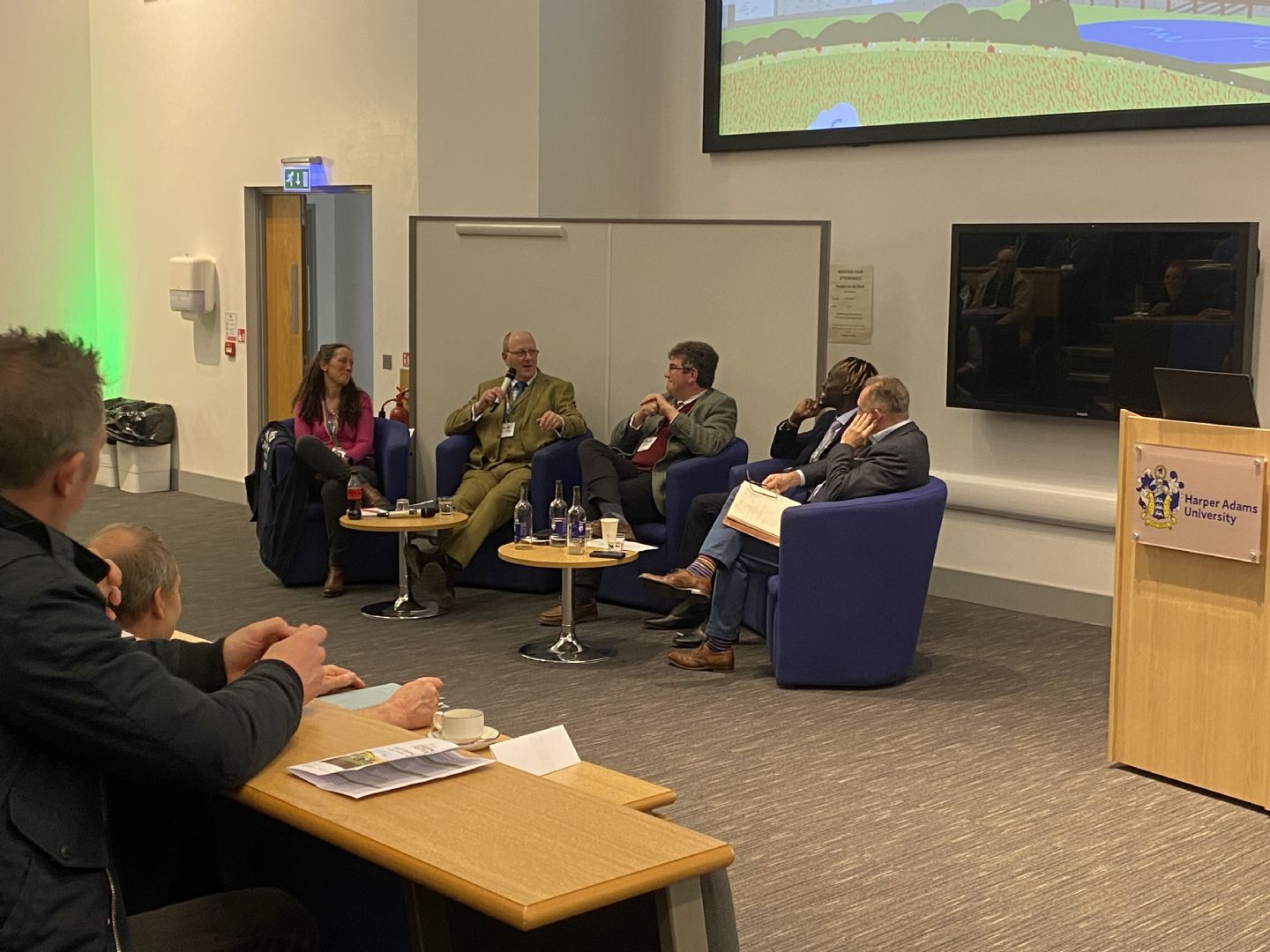
Despite the huge variance in farm business size, enterprise types and systems, there are some key steps which any farmer can take in decarbonising their business.
Speaking in the final panel discussion at the RASE Farm of the Future: Net Zero in Practice event, farmers Stephen Briggs, Flavian Obiero and Paul Westaway, along with Nigel Davies from Malt Doctor Ltd, explored their key take homes from the day. They each shared some recommendations relevant to any farmer setting out to decarbonise their business while remaining profitable.
1. Surround yourself with people on the decarbonisation journey
Challenges on farms and throughout the supply chain are to be expected, but farmers need safe, manageable steps to have the confidence to make changes. Steve Briggs shared that for him, the conversations at the Farm of the Future event have provided some of the thinking and join the dots, helping him to identify next steps for his farm.
Speaking in the final panel discussion, he said: “If you’re going on this journey, then surround yourself with people who are also on that journey, because together - as farmers - we know about innovation, we know about taking risks, we know about transitioning. The more we surround ourselves with people on the same journey it enables the step change that takes us forward.”
2. Go on every farm walk you can
Paul Westaway shared that he goes on every farm walk he possibly can, because he always learns something. “Farm walks are accessible and welcoming, some people aren’t comfy sitting in a meeting room or lecture theatre, but most people love a farm walk.”
There are a several organisations facilitating farm walks in the UK, including IfA, as well farmers forming local groups to learn from each other. Speaking at the event, Flavian Obiero shared that he has recently set up a farm group in the South East called Next Generation. “We try to meet up at least once a quarter, often more if we can, and just go on farm walks. It gives people the chance to see what everyone else is doing and people feel way more comfortable there, nobody feels judged.”
3. Look for ways to learn from what other sectors are doing
Nigel Davies suggested looking for new ways of engaging across farming. “Cereal farms generally don’t bring any discussions of livestock, but there are things to learn.” On the flip side, Nigel highlighted that there are mostly untapped innovations from the arable sector when it comes to alternative feeds for ruminants to reduce methane emissions. “Farms can achieve impressive results by changing what we are feeding to cattle, we need to hear more of those case studies,” he said.
4. Avoid getting hung up on emissions
To reach net zero, emissions from farms need to be reduced, but as Steve highlighted, “Emissions are just one side of the coin, we need to look at feeding and grazing regimes, as grass systems can be part of the answer.”
Likewise, a recurring theme from the event was agroforesty, with Abi Reader and Helen Browning OBE both sharing in the first panel discussion of the day how planting trees is part of their strategy to reach net zero.
5. Invite your MP to your farm
Having your local MP out to visit your farm is one of the most effective ways to influence Defra. In the panel discussion, Steve suggested talking to them about what you’re doing, the challenges you’re facing, the options there are to decarbonise and the support you need to enable your business to take those steps.
Taking any of these five steps will support the journey towards decarbonising any farm business. If all five seem daunting, take the leap and try just one first to see where it takes you. Attending a farm walk can be a great start, sign up to IfA’s newsletter or check the events page to see what’s coming up in your area.




